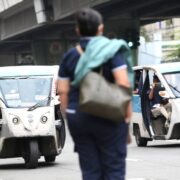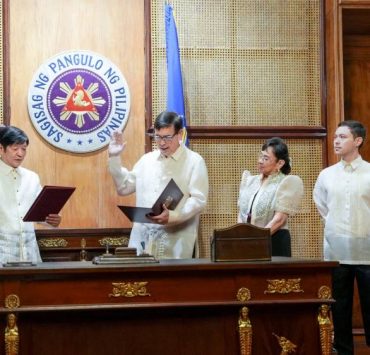Drop everything and read: DepEd rolls out ‘Catch-up Fridays’
“Drop everything and read.”
Classes in elementary and secondary schools nationwide today will take a pause from subjects related to math and science and will instead focus on reading, values, health and “peace education.”
The Department of Education (DepEd) is rolling out “Catch-up Fridays,” primarily to arrest the alarming decline in reading skills among Filipino youths as reflected in recent international rankings.
Instead of the regular class program, students will be immersed in the printed text to sharpen their reading comprehension, strengthen their sense of values, make them more mindful of both their physical and mental health, and introduce them to “peace education,” the last tackling the growing problem of bullying.
As part of DepEd’s National Learning Recovery Program, all Fridays throughout the school year will be dedicated to these four learning areas “to actualize the intent of the basic education curriculum.”
According to a DepEd memorandum on the program released on Wednesday, the first half of the day’s schedule will focus on the National Reading Program (NRP), while the second half will be allotted to values, health and peace education, along with “Homeroom Guidance Program.” Both programs will be allotted two hours and 20 minutes each.
‘Reflection journal’
Since the main objective of Catch-up Fridays is to reinforce learning, the activities will not be graded and the progress of individual students will be monitored through a “reflection journal” where they will write about their reading experiences, among others.
“Learners may also articulate their thoughts through various forms of writing, such as stories, journals, personal essays, and other forms of creative expression that reflect their unique learning experiences,” said the memorandum signed by Education Undersecretary Gina Gonong.
DepEd said this new intervention was designed to address the low reading proficiency levels of Filipino students as shown in national and international assessments.
In the latest results of the Programme for International Student Assessment (Pisa), for example, 15-year-old Filipino students were among the lowest scorers from 81 countries with an average score of 347 points in reading, way below the global average of 476.
Different strategies
A 2022 World Bank Report revealed that nine out of 10, or 91 percent of Filipino kids age 10 were struggling to read simple texts.
“The time allotment for the NRP shall give learners opportunities for reading intervention and reading enhancement through developmentally appropriate reading materials,” DepEd said.
Schools may adopt different strategies to implement the NRP, like the main activity for this month—dubbed “Drop Everything and Read”—in which students would be given a chance to read a book of their choice.
Another approach is “Read-a-thon,” wherein teachers would allot 10 to 15 minutes of their language class periods for volunteer students to retell or do oral reading interpretations of “text preferably written by Filipino authors.”
A sample class program flow provided by DepEd suggested doing interactive activities before the actual reading—like singing songs or chants related to the story or poem that would be used, predicting the text, playing games, or using flashcards to highlight words or syllables.
During the actual reading, teachers may ask students to do some role-playing so they could “visualize the scenes, characters and situations,” or “predict what shall happen next,” among other approaches.
Vice President and Education Secretary Sara Duterte introduced the DepEd’s Catch-up Fridays initiative in November 2023 during the culmination of the National Reading Month.
“We are seeing that the quality of education is not really good and we are going to start with teaching the students how to read. There are a lot of nonreaders and slow readers so we need to give them one day where they will do nothing but practice and learn how to read,” she then said.
Pervasive problem
In addition to reading, DepEd said values education would be a priority during Catch-up Fridays in compliance with Republic Act No. 11476, or Good Manners and Right Conduct and Values Education Act.
As to peace education, DepEd said the subject was part of the agency’s “prompt response” to the 2022 Pisa which also revealed that bullying remained a pervasive problem in Philippine public schools.
The department has also laid down the quarterly themes and subthemes for all grade levels for values, health and peace education, following the revised “Matatag” curriculum released in August 2023.
Mental health, drugs
Under peace and values education, topics such as “positive and negative peace,” environmental stewardship, social justice and human rights, cultural sensitivity, public order and safety, and global peace and security, will be discussed.
In health education, the quarterly themes include disease prevention and control, which will start on the topic of personal hygiene for the first graders, mental health, sexual and reproductive health, and drug education.
Discussions about bullying will be introduced in the second quarter of Grade 4. The sessions will also delve into other sensitive topics such as harassment, discrimination and violence; basic rights related to child safety; assertive behaviors, and what can victims do to report bullying or abuse. INQ

















